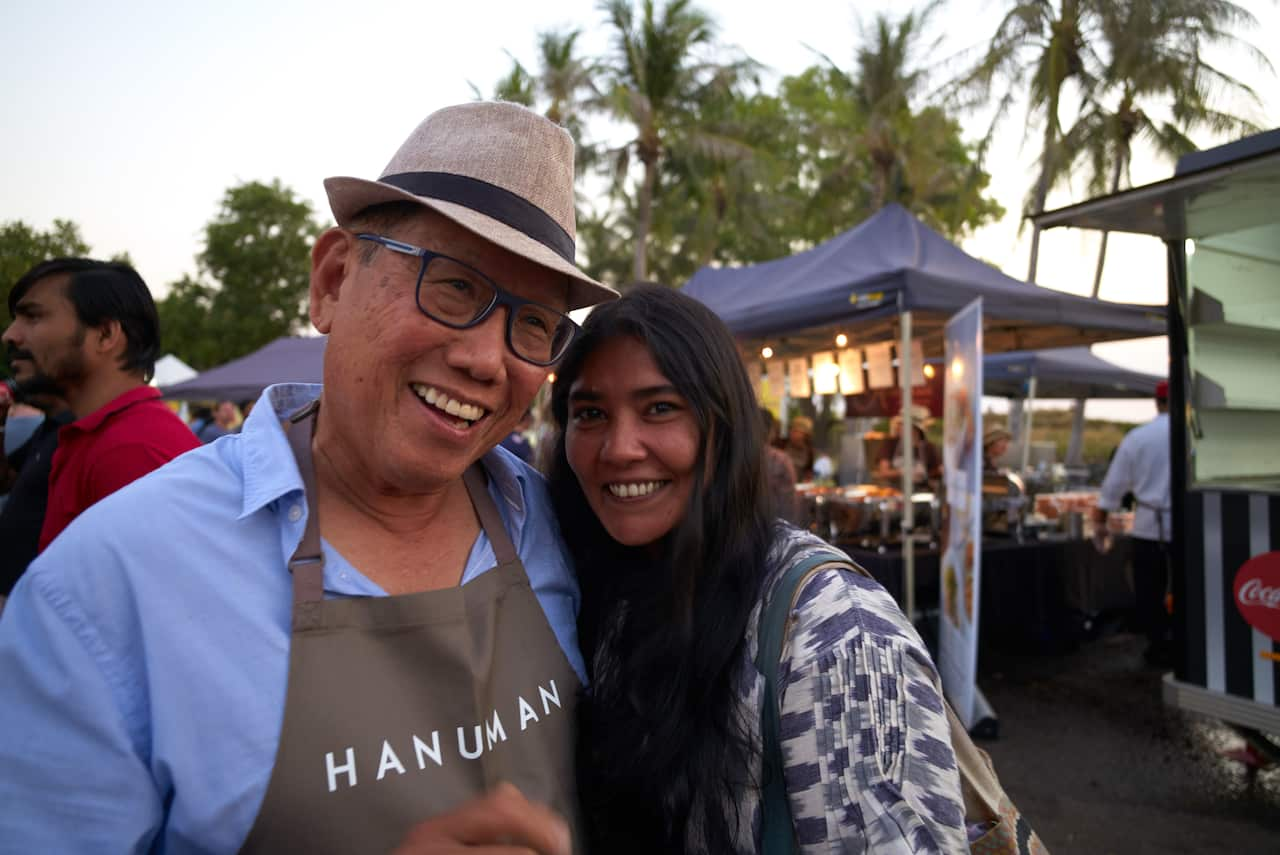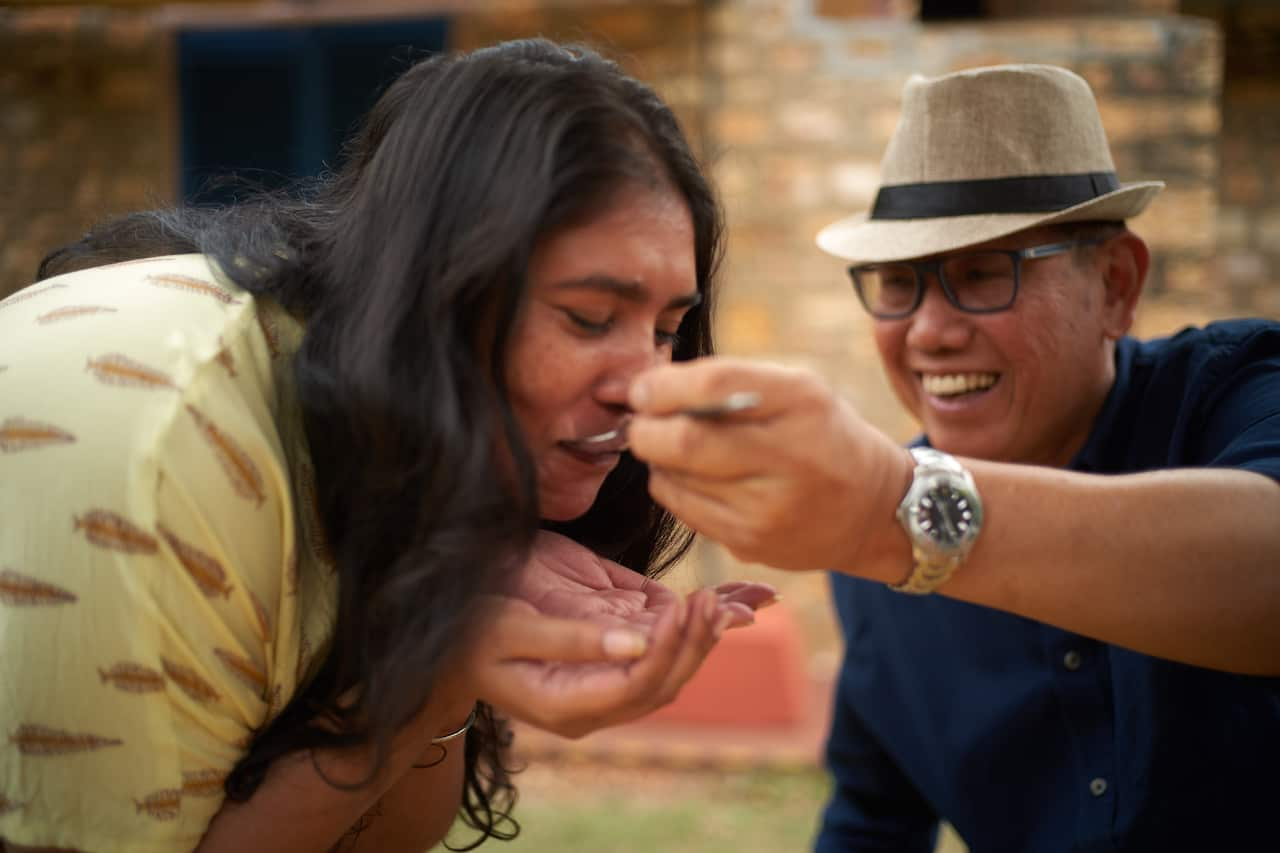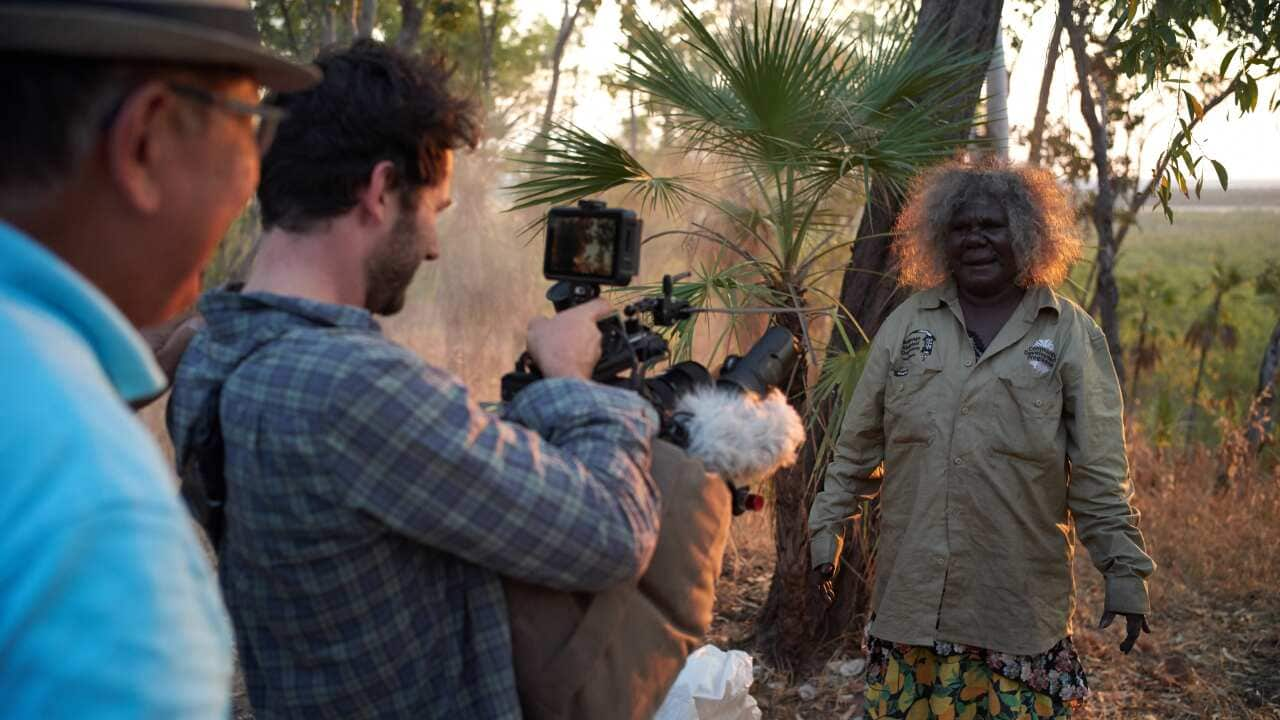For Naina Sen, home isn’t defined by bricks and mortar. It can be as much about a fleeting encounter that shows you where you belong. A few days after the Delhi-born filmmaker relocated to Darwin from Melbourne, she overheard a conversation. It sparked a sense of connection with the place she’d moved to that has shaped her trajectory ever since.
“In 2006, I was working at ACMI and we did a storytelling program with the Koori Heritage Trust and it had a big impact on me,” says Sen, who immigrated to Australia to complete her Master’s in Media Studies at LaTrobe University in 2001. “On my second day in Darwin, there was a Yolngu family who were walking past, and they were talking. Melbourne is very multicultural but there was something different about this. It was language spoken where it was from and [this] was something I had grown up with. I remember breathing differently. I didn’t know it was something I had been missing.” Sen was born to Bengali parents. She grew up in New Delhi, in a house that was full of art and music and literature. “Storytelling was always part of my family,” she says. Her first feature documentary, 2017’s critically acclaimed The Song Keepers told the story of the Central Australian Aboriginal’s Women’s Choir. The group, which sing hymns introduced by German missionaries in the 1870s in Western Arrernte and Pitjantjatjara languages, reflects Sen’s commitment to stories that reflect an Australia that most of us don’t know about. It also speaks to an approach that is deeply collaborative as well as a passion for cross-cultural exchange.
Sen was born to Bengali parents. She grew up in New Delhi, in a house that was full of art and music and literature. “Storytelling was always part of my family,” she says. Her first feature documentary, 2017’s critically acclaimed The Song Keepers told the story of the Central Australian Aboriginal’s Women’s Choir. The group, which sing hymns introduced by German missionaries in the 1870s in Western Arrernte and Pitjantjatjara languages, reflects Sen’s commitment to stories that reflect an Australia that most of us don’t know about. It also speaks to an approach that is deeply collaborative as well as a passion for cross-cultural exchange.

Jimmy Shu with producer Naina Sen while shooting Taste of the Territory. Source: SBS
Darwin, the Northern Territory’s steamy tropical capital has been home, for 65,000 years, to the Larrikia people. It’s also been shaped by successive waves of immigration, from Makassan traders and Japanese pearlers to newer arrivals from Malaysia, Timor, Vietnam and Syria. On , Sen’s first-ever food show, Sen hopes to show viewers that Darwin is unlike anywhere else in Australia. She says that this confluence of cultures and histories is part of the Top End’s DNA.
“Darwin is closer to Asia than it is to any capital city and [here], I feel more at home than anywhere else in the country,” she says. “I’m used to the climate. We have bougainvillea. [Everywhere you go], there’s a fan. On the weekend markets here, you can buy kaffir lime leaves and coriander the way people buy basil down south. There’s a kind of multiculturalism that exists in day-to-day life.” Food, of course, is a powerful expression of cultural identity. “India is a culture obsessed with food – we plan our next meal as we’re eating our first one,” she laughs. But it’s also evidence of the way people adapt to places, changing them in the process. For Sen, no one epitomises this better than the show’s host, Top End culinary legend Jimmy Shu. The chef who was born in Sri Lanka to Chinese parents, moved to the Territory in 1989 to start Hanuman, where he explores Tamil, Thai and Nyonya cooking traditions. On the first episode of Taste of the Territory, he immerses himself in tropical produce – dragon fruit, pandan leaves – at Rapid Creek Market. Later, he meets Sri Lankan-born Karunika Pemaratne, who teaches him to make Sri Lankan baby jackfruit curry.
Food, of course, is a powerful expression of cultural identity. “India is a culture obsessed with food – we plan our next meal as we’re eating our first one,” she laughs. But it’s also evidence of the way people adapt to places, changing them in the process. For Sen, no one epitomises this better than the show’s host, Top End culinary legend Jimmy Shu. The chef who was born in Sri Lanka to Chinese parents, moved to the Territory in 1989 to start Hanuman, where he explores Tamil, Thai and Nyonya cooking traditions. On the first episode of Taste of the Territory, he immerses himself in tropical produce – dragon fruit, pandan leaves – at Rapid Creek Market. Later, he meets Sri Lankan-born Karunika Pemaratne, who teaches him to make Sri Lankan baby jackfruit curry.

On the first episode of SBS series Taste of the Territory, Shu immerses himself in tropical produce – dragon fruit, pandan leaves – at Rapid Creek Market. Source: SBS
“Jimmy is as passionate about food as he is about feeding people and I can’t tell you how hard he worked on this series,” Sen says. “He’s never presented before but he is an absolute inspiration. He’s always striving for excellence. In the last episode, you get deep into his story, into what his family built out of nothing. He came to Australia with fifty dollars in his pocket. He lives and breathes food and his pursuit of it will never end.”
Food shows tend to celebrate chefs and their famous friends and acquaintances. They can turn making food into aspiration.
Food shows tend to celebrate chefs and their famous friends and acquaintances. They can turn making food into aspiration. On Taste of the Territory, cooking is a form of everyday survival, about triumphs that play out on weekend markets and roadside kitchens. The show’s characters, like Wayne, the son of Vietnamese political refugees who has been dishing out pork balls at Parap Markets for two decades and Amye Un, who grills Indonesian charcoal chicken in a backyard on Stuart Highway, are proof that food can be a bridge between homes we’ve left and homes we make.
“There are many intangible reasons people love this place and never leave,” she says. “It is the multicultural tapestry, it is the landscape, it is the tropical lifestyle. But, there is also this visceral thing that is very hard to describe. A lot of the stories we tell are about people who’ve come to Darwin fleeing persecution and war [and] food is their resistance and resilience. So many of the themes that kept coming up for me was about the journey coming to a new place, of not knowing the language, not having a support base - and then creating something out of nothing.”
Explore a with Jimmy Shu in his brand-new series at 8:30pm Thursdays from 23 April to 11 June on SBS Food and On Demand.





